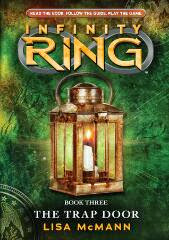POSSIBLE SPOILERS
For seventy-three years the Capitol of the nation of Panem held The Hunger Games, a violent fight to the death between the teenaged tributes from each of Panem’s twelve districts, as a reminder to never attempt to rise up against the merciless Capitol again. For each of the seventy-three Hunger Games, there has been only one victor. Until Katniss Everdeen and Peeta Mellark, in act of defiance against the Capitol, forced the Gamemakers to choose both of them as the victors. Now Katniss must convince the world that her act of defiance in the Games was driven by love for Peeta, or risk being the catalyst of rebellion against the Capitol. Everyone she loves is in danger. And with the punishment of participating in another Hunger Games with Peeta where only one can walk out alive looming over her, she must decide what is more important: surviving to fight the Capitol or keeping Peeta alive.
Suzanne Collins painted a world that revealed the darkest aspects of the hearts of humanity in THE HUNGER GAMES. In CATCHING FIRE, Collins continues Katniss’ story with the aftermath of Katniss’ decisions in the previous book, taking us deeper into a government system built on power, oppression and senseless killing, as well as deeper into the mind of a girl pushed beyond her limits with the fate of a nation and those she loves most resting on her shoulders.
I loved the first book. Not because of the senseless bloodbath that it depicts, but because it reflected a world desperately in need of redemption, and Katniss struggles, in a sense, to be a light in the darkness. I loved the second book even more. As the story progresses, it begins to feel like Peeta is the real hero of this story as he pours all of his energy into protecting Katniss even though she doesn’t know how she feels about him. It’s an incredible picture of unconditional love.
Collins does an incredible job of raising the stakes for the players involved. With the end of THE HUNGER GAMES, I wondered in what direction this story could go next and if it would be as captivating. CATCHING FIRE feels like you’ve been strapped in for a relentless gut-wrenching thrill ride where you’re desperately hoping the horror of it all can somehow be undone.
The villain becomes more present within the story in CATCHING FIRE as we’re given a closer look at the mysterious President Snow. The man is powerful, knows it, and will mercilessly destroy anyone who threatens that power. Collins gives a chilling description of a man who wears an aroma that is a mixture of roses and blood on his breath.
Nearly every chapter ends with somewhat of a cliffhanger, making it really hard to stop reading once you get to the end of a chapter. Once again, I loved the first-person narrative from Katniss’ perspective. Collins gives us some great descriptions of the world of Panem throughout so that imagining what it’s like is really easy. The end of the book will definitely leave wanting to get the next book and start reading immediately.
I love post-apocalyptic stories and I love trilogies. THE HUNGER GAMES Trilogy is quickly one of my favorites.
Review copy provided by Scholastic
Photo Credit: Scholastic







































